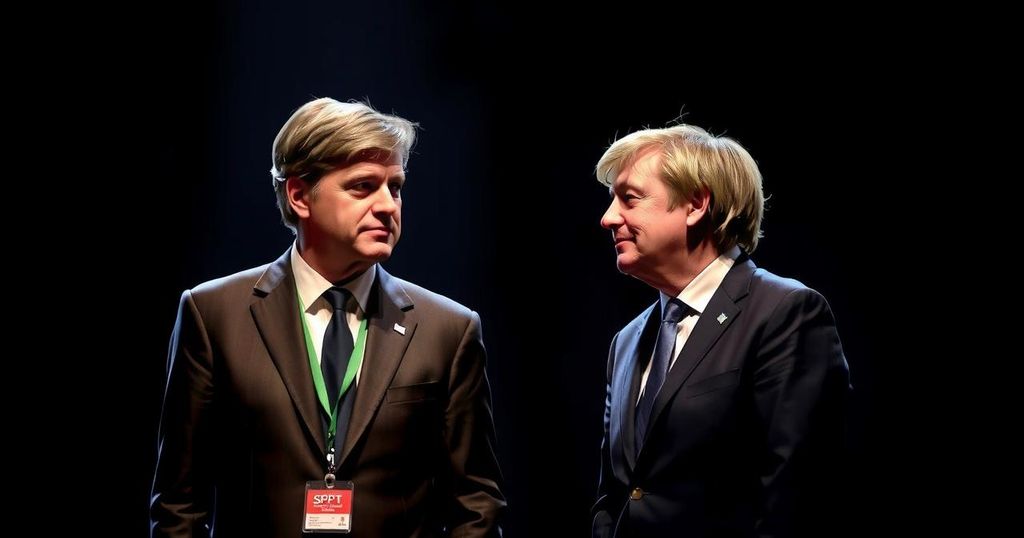Olaf Scholz to Head SPD in Upcoming Snap Election Following Pistorius’ Withdrawal

Chancellor Olaf Scholz will lead the SPD in the snap German election set for February following the withdrawal of Defence Minister Boris Pistorius. Despite internal party pressures and low popularity ratings, the SPD has opted to maintain continuity with Scholz’s leadership in the face of challenges posed by the CDU and economic pressures.
Chancellor Olaf Scholz of Germany has emerged as the candidate to lead the Social Democratic Party (SPD) in the forthcoming snap election scheduled for February. His nomination follows the withdrawal of Defence Minister Boris Pistorius, who, despite his popularity, stated in a video message that he would not participate in the race. Pistorius described his decision as “my sovereign, my personal and entirely own decision” and expressed that he did not initiate the discussions concerning his candidacy. Following this decision, Scholz stands as the party’s primary candidate amidst significant internal and external pressures.
In light of the SPD’s overall declining popularity, observers have raised concerns about Scholz’s chances against the opposition, particularly Friedrich Merz of the centre-right Christian Democrats (CDU), who currently commands substantial public support. With the SPD lagging significantly in the polls, many party members, including former leaders, had voiced strong support for Pistorius, complicating Scholz’s position. Nonetheless, party co-leader Lars Klingbeil affirmed their commitment to back Scholz as they prepare for the election battle ahead.
The situation unfolds amidst turbulent times for the German government, marked by recent discord within the coalition as Scholz dismissed Finance Minister Christian Lindner over budget disputes linked to the funding of military aid to Ukraine. This dismissal has further fractured the government coalition, perched precariously as critical economic challenges loom in the country. Scholz’s leadership qualities have been under scrutiny, particularly his capability to manage coalition dynamics and effectively communicate the government’s policy agenda to the electorate, who face rising inflation and economic uncertainty.
Former Chancellor Angela Merkel criticized Scholz’s conduct post-dismissal, underscoring the need for political leaders to maintain composure in challenging situations. Amid all these dynamics, the SPD’s upcoming conference and January’s party congress will be critical for consolidating support behind Scholz as they navigate the electoral landscape under increasingly precarious circumstances.
The backdrop of this political shift involves significant upheaval within Germany’s ruling coalition, particularly following Chancellor Scholz’s abrupt dismissal of his finance minister and the resultant power dynamics at play. Scholz has faced mounting pressures both from within his party and across the political landscape, exacerbated by dwindling public approval ratings for the SPD. The withdrawal of Boris Pistorius, widely seen as a potentially stronger candidate due to his popularity, adds layers to the already complex electoral scene as the SPD grapples with how to respond effectively in the face of a robust opposition party.
In summary, Olaf Scholz’s selection as the SPD candidate for the upcoming elections signals the party’s commitment to stability despite internal conflicts and external electoral challenges. As the SPD navigates a fraught political climate with declining public support, the outcomes of the forthcoming elections will hinge heavily on Scholz’s ability to engage voters and counter the effective strategies of the opposition. The political landscape remains uncertain, necessitating strategic positioning from the SPD as it approaches critical decision-making moments ahead of the election.
Original Source: www.theguardian.com








